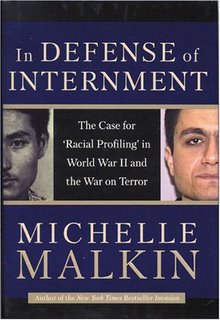Other current readings related to TSP / Class
1.
2. Congressional Oversight?
3. Several Classmates briefed Korematsu v. US (1944), although we did not discuss it in class. While its often viewed as a lowpoint for civil liberties in the US, and the dangers of overreaction, that's not universally true:

No Checks, Many Imbalances
By George F. Will
Thursday, February 16, 2006; A27
The next time a president asks Congress to pass something akin to what Congress passed on Sept. 14, 2001 -- the Authorization for Use of Military Force (AUMF) -- the resulting legislation might be longer than Proust's "Remembrance of Things Past." Congress, remembering what is happening today, might stipulate all the statutes and constitutional understandings that it does not intend the act to repeal or supersede.
But, then, perhaps no future president will ask for such congressional involvement in the gravest decision government makes -- going to war. Why would future presidents ask, if the present administration successfully asserts its current doctrine? ...This monarchical doctrine emerges from the administration's stance that warrantless surveillance by the National Security Agency targeting American citizens on American soil is a legal exercise of the president's inherent powers as commander in chief, even though it violates the clear language of the 1978 Foreign Intelligence Surveillance Act, which was written to regulate wartime surveillance.
2. Congressional Oversight?
Justice Dept. Role in Eavesdropping Decision Under Review
By Dan Eggen
Washington Post Staff Writer
Thursday, February 16, 2006; A04
The Justice Department's Office of Professional Responsibility has opened an internal investigation into the department's role in approving the Bush administration's warrantless domestic eavesdropping program, officials said yesterday.
In addition, Attorney General Alberto R. Gonzales signaled in an interview with The Washington Post yesterday that the administration will sharply limit the testimony of former attorney general John D. Ashcroft and former deputy attorney general James B. Comey, both of whom have been asked to appear before the Senate Judiciary Committee regarding the program.
"Clearly, there are privilege issues that have to be considered," Gonzales said. "As a general matter, we would not be disclosing internal deliberations, internal recommendations. That's not something we'd do as a general matter, whether or not you're a current member of the administration or a former member of the administration."
3. Several Classmates briefed Korematsu v. US (1944), although we did not discuss it in class. While its often viewed as a lowpoint for civil liberties in the US, and the dangers of overreaction, that's not universally true:


0 Comments:
Post a Comment
<< Home